Hold on to your katanas, fellow gamers! While the initial buzz around Assassin’s Creed Shadows naturally drew comparisons to the stunning Shadow Ghost of the Tsushima, a closer look reveals a fascinating truth: Ubisoft’s upcoming samurai epic is carving its path, one that strikingly resembles the intricate and dynamic world of Rise of the Ronin. Forget being a mere shadow ghost of Sucker Punch’s masterpiece; Assassin’s Creed Shadows is stepping into the light with a distinct identity. Let’s delve into the compelling reasons why Shadows Is More Rise than you might think.
Beyond the Horizon
Internal Strife vs. External Threat
One of the most fundamental differences lies in the very fabric of their narratives. Ghost of Tsushima throws you into the thick of the Mongol invasion, a desperate fight against an external foe threatening to engulf Tsushima, Japan. The focus is on defending the homeland, a clear and present danger from across the sea. However, both Assassin’s Creed: Shadows and Rise of the Ronin immerse players in periods of intense internal conflict and profound cultural transformation.
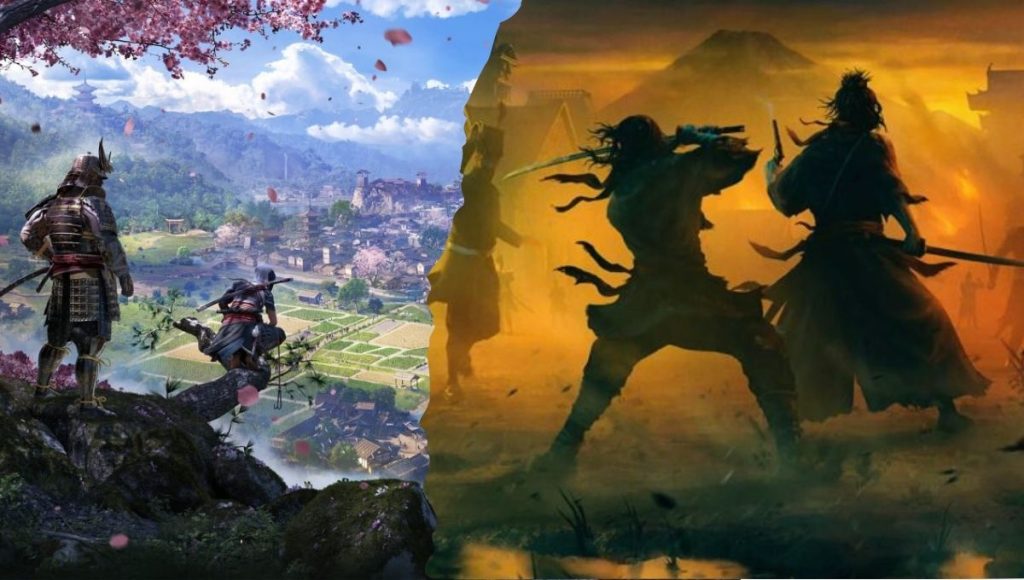
Think shifting power dynamics, clashing ideologies, and the struggle for identity within a nation undergoing significant change. This core difference in setting immediately positions Shadow’s Rise, emphasizing the complexities of internal strife rather than a straightforward defense against invaders. You won’t just be another Shadow Ghost fighting off a foreign army; you’ll be navigating the treacherous currents of a nation at odds with itself.
A World Alive
Density and the Embrace of RPG
While the windswept beauty of the Ghost of Tsushima is undeniable, Assassin’s Creed: Shadows and Rise of the Ronin seem to be taking a different approach to their world design. Early glimpses suggest that the environments in Shadow of the Colossus Rise will be denser, with bustling villages and intricate architecture that feels more alive and reactive.
Related:
This mirrors the design philosophy of Rise of the Ronin, where the world feels like a genuine, breathing society undergoing upheaval. Furthermore, Assassin’s Creed: Shadows is leaning heavily into role-playing elements – skill trees, meaningful dialogue choices, deep gear customization, and even the possibility of forming romantic relationships.
These RPG mechanics are far more pronounced than in Ghost of Tsushima, firmly placing Shadow of the Tomb Raider in a similar vein to Team Ninja’s offering. You’re not just playing a skilled warrior; you’re shaping their destiny through your choices, a far cry from simply embodying the heroic Ghost of Tsushima. This focus on player agency and a reactive world ensures that the experience transcends being a simple clone assassin.
The Ronin’s Path
Embracing Internal Change
The very essence of what was a ronin – a masterless samurai navigating a world in flux – resonates deeply with the premise of both Assassin’s Creed: Shadows and Rise of the Ronin. These games explore the challenges and opportunities presented by periods of societal upheaval. Strict codes or allegiances do not necessarily bind you in the same way as Jin Sakai in Ghost of Tsushima.
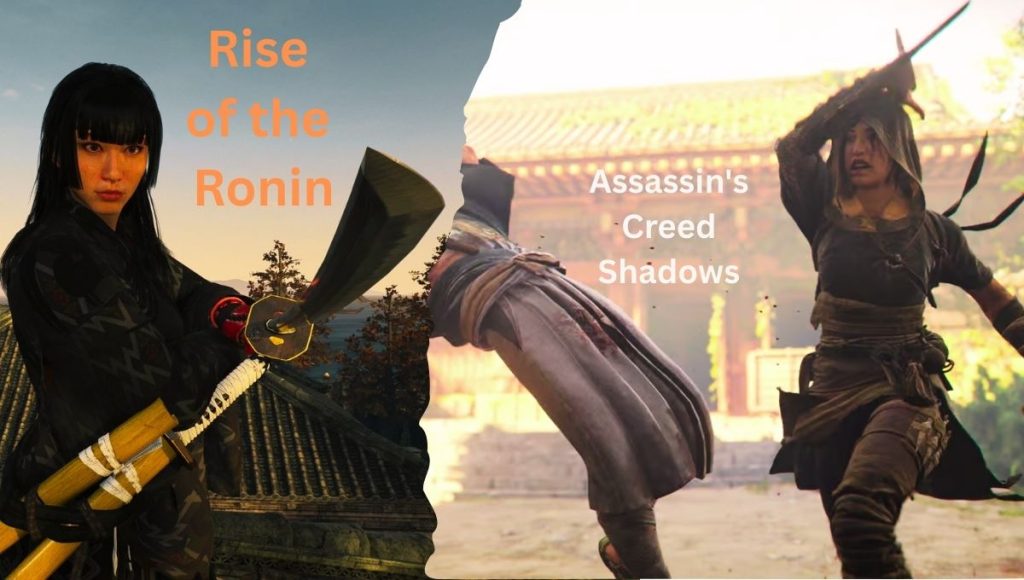
Instead, you’re likely to be forging your own path, making difficult choices in a world where loyalties are constantly tested. This emphasis on navigating internal change and personal agency is a key differentiator, solidifying the notion that Shadows Is More Rise in its thematic core. The feeling won’t be of a legendary hero like the Ghost of Tsushihama defending his home, but rather of individuals grappling with the shifting sands of fate.
Deeper Mechanics
Beyond the Blade
While combat prowess is undoubtedly crucial in all three games, the underlying mechanics and progression systems appear to be more aligned between Assassin’s Creed: Shadows and Rise of the Ronin. The deeper RPG elements in Shadow of the Tomb Raider suggest a greater emphasis on character builds, skill specializations, and the impact of your gear.
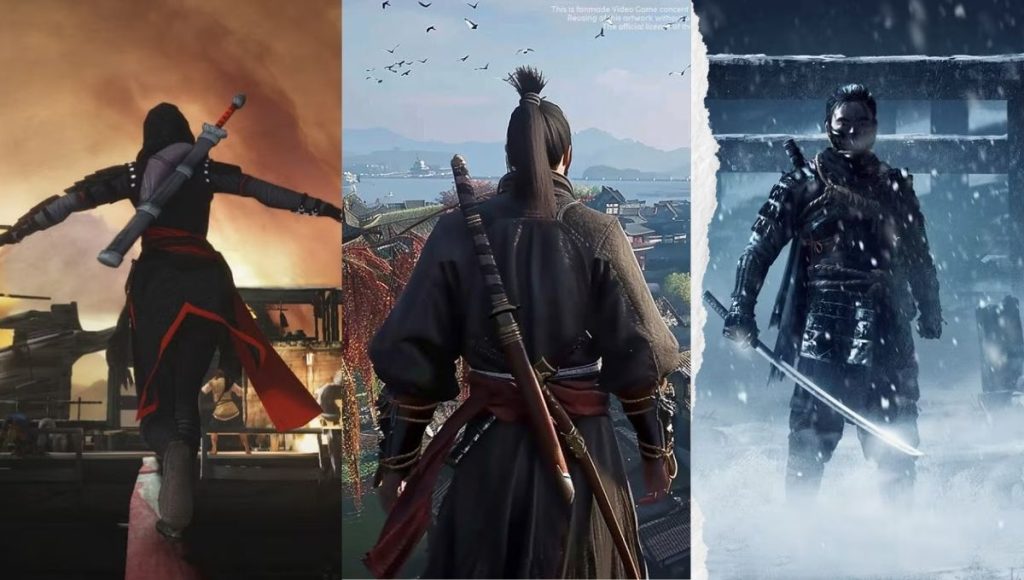
This level of customization and progression is a hallmark of Rise of the Ronin, offering players a significant degree of control over their playstyle. While Ghost of Tsushima offered a satisfying combat system, its progression felt more linear compared to the potential depth hinted at in Shadow of the Colossus: Rise of the Beasts. This focus on layered mechanics further distances it from being a mere shadow ghost of Sucker Punch’s title.
A Different Kind of Legend
Forging Your Own Story
Ultimately, while the feudal Japan setting provides a common backdrop, Assassin’s Creed: Shadows is shaping up to tell a very different kind of story. It’s not solely about repelling an invasion like in Ghost of Tsushima; it’s about navigating the complexities of a nation in transition, where internal conflicts and personal narratives take center stage.
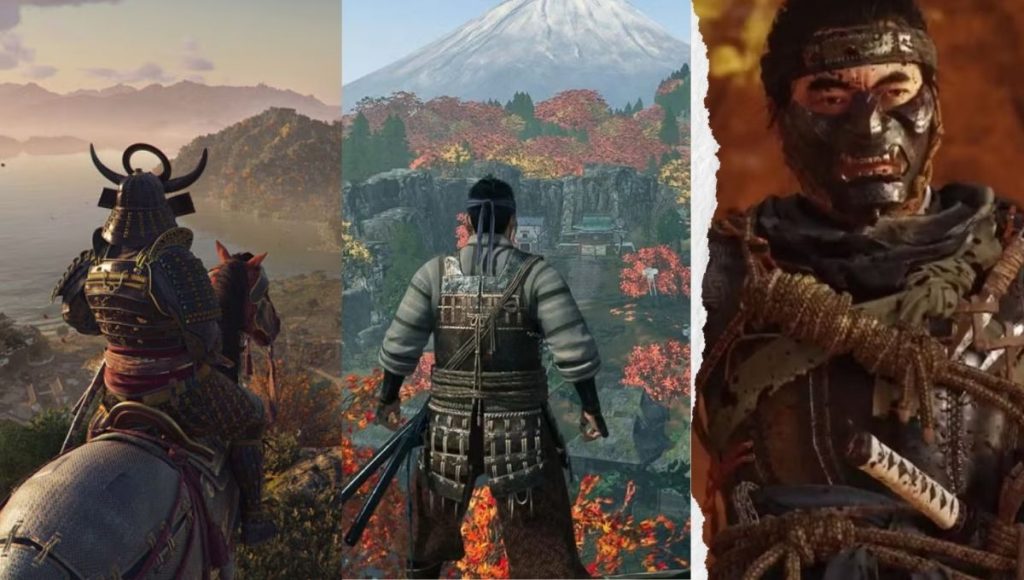
This focus on individual stories within a larger historical context aligns perfectly with the spirit of Rise of the Ronin. You’ll experience the era through the eyes of distinct characters, each with their own motivations and challenges, a far cry from the singular heroic journey of the Ghost of Tsushima. Therefore, it’s clear that Shadow’s Rise is more nuanced, offering a more nuanced and internally focused experience.
The comparisons of the Game of the Shadow Ghost
| Feature | Ghost of Tsushima | Assassin’s Creed Shadows | Rise of the Ronin |
| Japan’s Stage | Mongol Invasion | Internal Strife | Internal & External Shift |
| World Feel | Atmospheric Beauty | Dense & Lively | Dynamic & Reactive |
| Action Focus | Samurai Swordplay | Stealth & RPG Blend | Deep Action RPG |
| RPG Depth | Light Customization | Significant RPG | Extensive RPG |
| Story Drive | Homeland Defense | Personal & Political | Choice-Driven Conflict |
| “Shadow Ghost” Vibe | The Benchmark | Finding Its Own Path | The Closer Cousin |
Conclusion
In conclusion, while the initial comparisons to the Ghost of Tsushima were understandable, a deeper examination reveals that Assassin’s Creed: Shadows shares a much stronger kinship with Rise of the Ronin. From its focus on internal strife and cultural transformation to its robust RPG mechanics and denser world, Shadows is more Rise than a simple shadow ghost.
Related:
It’s a testament to the unique vision Ubisoft is bringing to feudal Japan, and perhaps, as the original article suggests, it even shines a light on the underrated brilliance of Rise of the Ronin. So, prepare to step into a world where the lines between right and wrong are blurred, where your choices truly matter, and where the spirit of the ronin guides your path.
Assassin’s Creed: Shadows is poised to be a distinct and compelling experience, far beyond the shadow of Ronin or any clone assassin label. Forget Taushima or any misspellings; this is a new era for Assassin’s Creed in Japan, and it’s looking remarkably like a spiritual successor to the dynamic world of Rise of the Ronin. The anticipation is high for this unique blend of stealth, action, and RPG depth!
FAQs
FAQs:
1. Is Assassin’s Creed: Shadows just a “shadow ghost” or clone of Ghost of Tsushima?
No, while both games are set in feudal Japan, Assassin’s Creed Shadows distinguishes itself through its focus on internal conflict, deeper RPG mechanics, dual protagonists with distinct playstyles, and a denser, more reactive open world, making it more akin to Rise of the Ronin than a simple copy of Ghost of Tsushima.
2. How is Assassin’s Creed: Shadows more like Rise of the Ronin than Ghost of Tsushima?
Assassin’s Creed Shadows shares similarities with Rise of the Ronin in its setting (a period of internal strife), emphasis on significant RPG elements (skill trees, dialogue choices, gear customization), a denser and more lively open world, and a narrative likely centered on navigating complex internal conflicts rather than solely facing an external invasion like in Ghost of Tsushima.
3. What are the key differences in the settings between these three games?
Ghost of Tsushima is set during the Mongol invasion of the 13th century, focusing on defending against an external threat. Assassin’s Creed: Shadows takes place during the Sengoku period, a time of intense internal conflict and cultural transformation. Rise of the Ronin is set in the Bakumatsu period, dealing with both internal upheaval and the arrival of Western powers.
4. Will Assassin’s Creed: Shadows have RPG elements like Rise of the Ronin?
Yes, Assassin’s Creed: Shadows is confirmed to feature significant RPG elements, including skill trees, dialogue choices that may impact the story, extensive gear customization, and even the possibility of romantic relationships. These elements mirror the RPG focus found in Rise of the Ronin more so than the lighter RPG elements in Ghost of Tsushima.
5. Should I be excited for Assassin’s Creed: Shadows even if I loved Ghost of Tsushima? Absolutely! While sharing a setting, Assassin’s Creed: Shadows offers a distinct experience with its focus on internal conflict, deeper RPG mechanics, dual protagonists, and a different approach to its open world. If you enjoyed the dynamic world and RPG elements of games like Rise of the Ronin, Assassin’s Creed: Shadows is shaping up to be a compelling and unique journey through feudal Japan.
Assassin’s Creed: Shadows

| Score Says | 9/10 |
| Genre Mix | Action |
| Review Buzz | Top Critic: 82/100 |
| Thumbs Up? | 83% Recommend |
| Launch Date | March 20, 2025 |
| Grown-Up Content | Mature 17+ (Blood, Violence, Language) |
| Crafted By | Ubisoft Quebec |
| Brought To You By | Ubisoft |
Author
 Sardar Khurram is the guy behind the Kings Game. He’s super into video games and writes about them every Day. He tells you what he thinks of new games, how they work, and what’s good and evil. He also talks about what’s happening in the gaming world. This guy loves games and wants to share his thoughts with you! Please feel free to share your thoughts in the comments below.
Sardar Khurram is the guy behind the Kings Game. He’s super into video games and writes about them every Day. He tells you what he thinks of new games, how they work, and what’s good and evil. He also talks about what’s happening in the gaming world. This guy loves games and wants to share his thoughts with you! Please feel free to share your thoughts in the comments below.

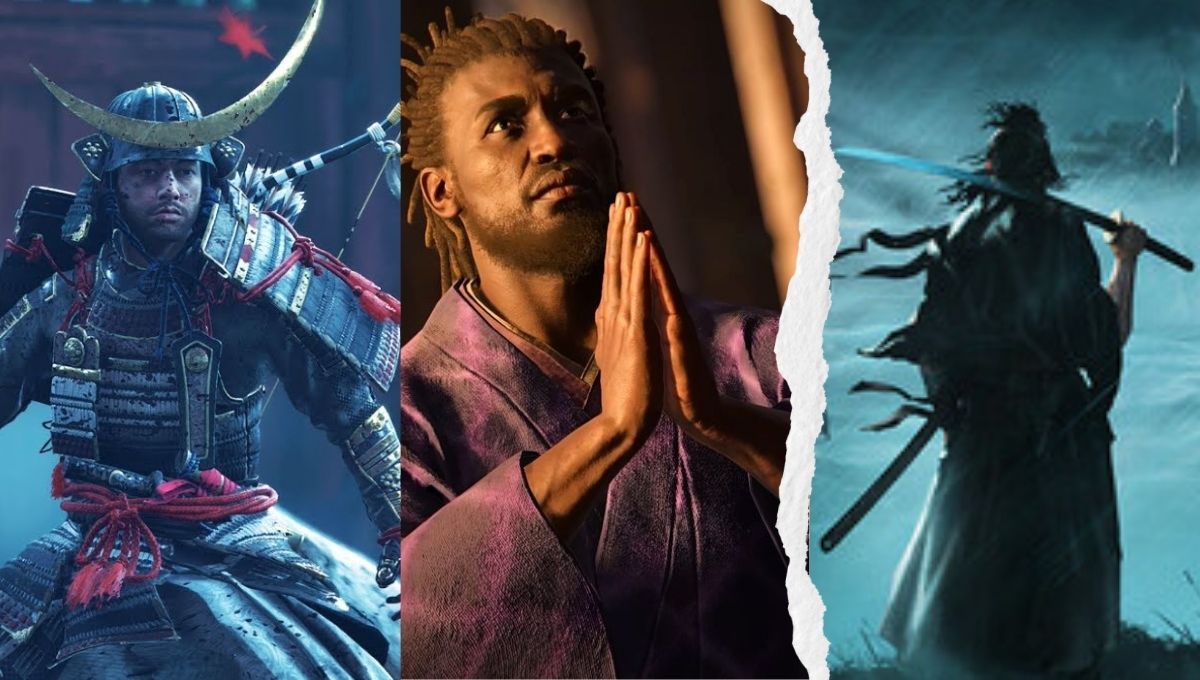
4 thoughts on “10 Brilliant Reasons Why Assassin’s Creed Shadows Is More Rise of the Ronin Than a Shadow Ghost of Tsushima”